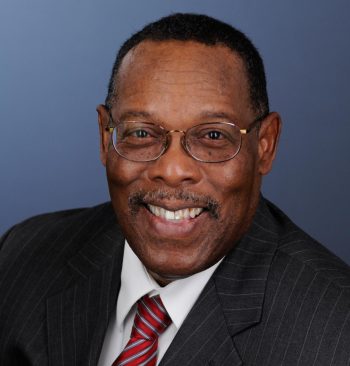This content is being reviewed in light of recent changes to federal guidance.
“Pandemic, Interracial Strife, and the Saving Grace of the Humanities”
[By John Edgar Tidwell]
Reposted from Humanities Kansas’s newsletter
 When Langston Hughes poetically posed the question “What happens to a dream deferred?” he unwittingly but profoundly anticipated the world we now inhabit. Our world has all the feel of a roller coaster or some other carnival ride where up seems down and down seems up. After January 20th, the nation was beset with preventative rules: wash our hands, avoid touching our eyes, keep six feet apart, trace our contacts, and wear a mask. The Covid-19 virus was upon us, and desperate matters called us to contend with measures of self-preservation. Yes, Langston proved to be prescient. Amid the pandemic came yet another crisis, one that has seen the nation roil with riots, looting, shooting, and burning. The brutal death of George Floyd at the hands of Minneapolis police on May 25th became the flame in a Molotov cocktail as the nation recoiled in righteous anger. The death and dying caused by the virus and the police and experienced disproportionately by African-Americans connect these horrible events. And yet, despite race or social station, these events elicited several common responses: Am I not an American? Am I not entitled to life, liberty, and the pursuit of happiness? Don’t I deserve a chance to realize the American Dream? Am I not a human being?
When Langston Hughes poetically posed the question “What happens to a dream deferred?” he unwittingly but profoundly anticipated the world we now inhabit. Our world has all the feel of a roller coaster or some other carnival ride where up seems down and down seems up. After January 20th, the nation was beset with preventative rules: wash our hands, avoid touching our eyes, keep six feet apart, trace our contacts, and wear a mask. The Covid-19 virus was upon us, and desperate matters called us to contend with measures of self-preservation. Yes, Langston proved to be prescient. Amid the pandemic came yet another crisis, one that has seen the nation roil with riots, looting, shooting, and burning. The brutal death of George Floyd at the hands of Minneapolis police on May 25th became the flame in a Molotov cocktail as the nation recoiled in righteous anger. The death and dying caused by the virus and the police and experienced disproportionately by African-Americans connect these horrible events. And yet, despite race or social station, these events elicited several common responses: Am I not an American? Am I not entitled to life, liberty, and the pursuit of happiness? Don’t I deserve a chance to realize the American Dream? Am I not a human being?
Resolutions to these questions abound. Arguably, turning to the humanities practically guarantees the healing balm of consolation and reassurance. In preparing to make this shift, we must accept the potential for the humanities to be transformative. Therein lies the challenge. Humanities demand the impossible in us. They require us to seek, to question, to be unrelenting in our search for the best in ourselves and in others. Barack Obama discovered their meaning when, in another context, he defined “audacity.” In both Dreams From my Father and The Audacity of Hope, the former president described the courage necessary to make a way out of no way. On the campaign trail, he witnessed the pain of struggling people. But more importantly, he was taken with “their determination, their self-reliance, a relentless optimism in the face of hardship” (Audacity 356). This lesson he called “the audacity of hope,” a prelude to self-reflection. If we have the courage to engage in such introspection, then we can see how our lives intersect with others.
Switching metaphors, the humanities sound the clarion for love and hope. They defy vitriol, rancor, mean-spiritedness, and small-mindedness. The humanities make us bigger, more tolerant, more respectful of difference. They bring out our best. They ask, with the late Black feminist June Jordan: “Where is the love?” (Civil Wars 141). For Jordan, personal and social responsibility hinged on the answer to that decisive question. Love, then, is a virtue. It is not discoverable in the conduct of the strong versus the weak. Instead, as Jordan continues, “it is to be found in our behavior and policies affecting those who are different, those who are weaker, or smaller than we’’ (142).
As a bridge, the humanities remind us that we have more in common with each other than what separates us. They promote the value of civility, not self-interest; a broad view, not tunnel vision. The result is mutual respect, which comes from reasonable arguments, conversations, meaningful debate, and exchanges. The unreasonable harbors ill will, irrational emotions, sectarian discourse, uncivil behavior, and divisiveness. The humanities might begin in the racially-specific, but they reveal the irrevocable ties that bind us to each other. In his poem “I, Too,” Langston Hughes opens with a Walt Whitmanesque line declaring his celebration of the principles for which the nation stands. The reason for his acclamation is found in the poem’s closing line: “I, too, am America.”
Why do we need the humanities? Simply put, they enable us to identify the best in ourselves and to share our self-knowledge with each other. As we weather the current pandemic and interracial strife, we should turn to humanities’ inherent saving grace. For it is there we find the courage, love, and hope to withstand the assaults upon our humanity and upon our very soul.
Dr. John Edgar Tidwell is a native of Independence, Kansas, and recent professor emeritus at the University of Kansas.